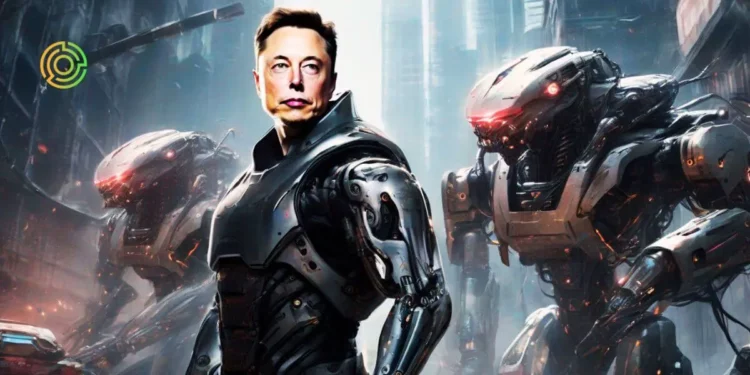In recent days, the tech world has been abuzz with the escalating feud between Elon Musk and OpenAI. The controversy stems from Musk’s allegations that OpenAI has strayed from its original mission and morphed into a profit-driven entity, contrary to its foundational principles. This article aims to dissect the intricacies of this dispute, shedding light on the key points of contention and providing valuable insights into the evolving landscape of artificial intelligence (AI) development.
OpenAI vs. Elon Musk
The Genesis of OpenAI
Founded in 2015 by a group of visionary technologists including Ilya Sutskever, Greg Brockman, Trevor Blackwell, and Andrej Karpathy, OpenAI initially garnered widespread acclaim for its noble mission of advancing AI for the betterment of humanity. With luminaries like Sam Altman and Elon Musk on its board of directors, the organization seemed poised to revolutionize the field of AI research.
Elon Musk’s Departure and Allegations
Elon Musk’s departure from OpenAI in 2018 marked the beginning of a tumultuous chapter in the organization’s history. Musk, a vocal advocate for AI ethics and safety, expressed concerns about the direction of OpenAI’s development efforts. His recent legal action against the organization accuses it of veering off course and prioritizing financial gains over altruistic goals.
The Shift Towards Profitability
Central to Musk’s accusations is the claim that OpenAI abandoned its nonprofit ethos in favor of pursuing lucrative opportunities. Indeed, the quest to achieve Artificial General Intelligence (AGI) necessitates substantial financial resources, a fact that OpenAI acknowledges. The organization contends that the monumental costs associated with AGI development compelled it to reassess its funding model, ultimately leading to discussions about transitioning to a for-profit entity.
Musk’s Proposal for Fusion
One of the most contentious points in this saga is Musk’s purported suggestion to merge OpenAI with Tesla, his flagship company. According to OpenAI, Musk envisioned leveraging Tesla’s resources and expertise to propel the development of AGI forward. However, disagreements arose regarding the extent of Musk’s control over the merged entity, with OpenAI expressing reservations about ceding autonomy to a single individual.
Diverging Paths
Ultimately, the impasse between Musk and OpenAI culminated in his departure from the organization. Musk’s decision to pursue AGI research within the confines of Tesla underscored his steadfast commitment to advancing AI technologies independently. Despite parting ways, Musk remained a staunch supporter of OpenAI, contributing significant financial support to its cause.
Legal Wrangling and Contrasting Perspectives
The legal battle between Musk and OpenAI offers a glimpse into the complexities of AI development and governance. While Musk portrays OpenAI as a pawn in Microsoft’s agenda, the organization maintains that its actions are driven by a commitment to responsible AI innovation. The divergence in viewpoints underscores the challenges inherent in navigating the intersection of technology and ethics.
As the dust settles on this high-profile feud, it raises pertinent questions about the future of AI research and collaboration. Can organizations like OpenAI strike a balance between financial sustainability and ethical integrity? Will Elon Musk’s vision for AGI materialize within the confines of Tesla? Only time will tell how this saga unfolds and its implications for the broader AI community.
The relationship between Elon Musk and OpenAI
The relationship between Elon Musk and OpenAI has been a much talked about topic in the field of AI.
The relationship between Elon Musk and OpenAI has been a much talked about and scrutinized topic in the field of artificial intelligence (AI). From OpenAI’s founding as a nonprofit to its evolution into a more closed, commercial center, critical pressures and changes have emerged.
Here are four key focuses you need to be aware of around this relationship:
1. The creation of OpenAI The creation of OpenAI was driven by concerns about the concentration of control in AI development, particularly in relation to Google DeepMind.
Elon Musk and other co-founders wanted to ensure that the benefits of AI were widely accessible, with no single entity controlling access to advancing innovations.
2. Despite its unique standards of openness and candor, OpenAI chose to end up more closed in terms of sharing its research and improvements.
This choice was based on growing concerns about the dangers associated with advanced AI and the need for significant assets to compete in its improvement.
3. The relationship between Elon Musk and OpenAI is complex. Initially, Musk was a dynamic benefactor and collaborator, but over time he communicated his concerns about the direction of the organization.
His proposal to change OpenAI’s title to “ClosedAI” reflects his recognition that the organization has strayed from its unique standards of openness.
4. Competition and AI Advancement The competition between OpenAI, Google DeepMind, and others, including Musk’s AI extension, xAI, highlights the serious race to create advanced AI capabilities.
This competition drives progress, but also raises questions about AI control, morality, and security.
See also: AI Safety Panel – Elon Musk, Max Tegmark, Greg Brockman and Benjamin Netanyahu
Conclusion
In conclusion, the clash between Elon Musk and OpenAI epitomizes the complexities of navigating the ethical and financial considerations inherent in AI development. While diverging perspectives have fueled legal disputes and public scrutiny, they also underscore the imperative of fostering transparency and accountability in the pursuit of AGI. As stakeholders grapple with these challenges, the path forward remains uncertain yet ripe with opportunities for innovation and collaboration.
FAQs
1. What is the dispute between OpenAI and Elon Musk about?
The dispute revolves around allegations made by Elon Musk against OpenAI, claiming that the organization has deviated from its original mission of promoting AI for the benefit of humanity and has become profit-driven instead.
2. Why did Elon Musk leave OpenAI?
Elon Musk left OpenAI in 2018 due to concerns about the organization’s direction and its prioritization of financial gain over ethical considerations in AI development.
3. What was Elon Musk’s proposal regarding OpenAI and Tesla?
Elon Musk proposed merging OpenAI with Tesla, his electric vehicle company, with the intention of leveraging Tesla’s resources and expertise to advance AI development. However, disagreements arose over the extent of Musk’s control in the merged entity.
4. How did OpenAI respond to Elon Musk’s allegations?
OpenAI responded by refuting Musk’s claims and asserting its commitment to responsible AI innovation. The organization emphasized the necessity of securing adequate funding for AGI development, which led to discussions about transitioning to a for-profit entity.
5. What are the implications of this dispute for the future of AI research?
The dispute underscores the complexities of balancing financial sustainability with ethical integrity in AI research. It also raises questions about the role of transparency and accountability in fostering responsible AI development.
6. Has there been any legal action taken in relation to this dispute?
Yes, Elon Musk has initiated legal action against OpenAI, alleging that the organization has become a “de facto closed-source affiliate” of Microsoft and prioritizes Microsoft’s interests over those of humanity in AI development.
7. How has the broader AI community responded to this dispute?
The dispute has sparked debate within the AI community regarding the ethical considerations and governance frameworks necessary for responsible AI development. It highlights the importance of collaboration and dialogue among stakeholders in shaping the future of AI.
8. What are the potential outcomes of this dispute?
The outcomes of the dispute remain uncertain, but it has the potential to influence the trajectory of AI research and governance. It may lead to increased scrutiny of AI organizations’ funding models and decision-making processes.
9. How can I stay updated on developments related to this dispute?
To stay informed about developments in the OpenAI vs. Elon Musk saga, follow reputable news sources covering technology and AI, and monitor official statements from both parties involved.
10. Where can I find more information about AI ethics and governance?
For more information about AI ethics and governance, consider exploring resources provided by organizations such as the Future of Life Institute, the Partnership on AI, and the IEEE Global Initiative on Ethics of Autonomous and Intelligent Systems.
Follow us on our social networks and keep up to date with everything that happens in the Metaverse!
Twitter Linkedin Facebook Telegram Instagram Google News Amazon Store
Recent Posts
- OpenAI Unveils SearchGPT: A New AI-Powered Search Engine
- Blockchain and Bitcoin: The Revolution in Online Casinos
- Dotcoin Tap-to-Play Game Set to Launch on Venom
- Look North World Secures $4.5M in Seed Funding, Partners with Gaming Giants
- Nexabot AI Launches AI-Powered Crypto Trading Bot for Cronos EVM Users












































